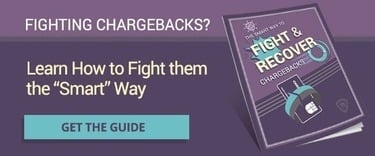Managing Hotel Chargebacks
In the hospitality industry, understanding chargebacks is not just a matter of financial concern; it's a strategic necessity. Chargebacks can be a significant drain on revenue and can conceal issues with customer service that might not be apparent through normal channels.
The reasons behind these disputes can be difficult to discern but identifying them is the first step toward discovering hidden vulnerabilities and mitigating risk.
Common Causes of Hotel Chargebacks
Credit Card Fraud
One of the most prevalent causes of chargebacks in general is credit card fraud. Hotels are generally less vulnerable to this type of fraud than some other types of businesses, such as e-commerce, because hotel reservations can’t be easily resold to a third party. However, credit card fraud does still occur, and hotels must be prepared for it.
Disputes Over Additional Charges
When guests incur additional costs such as room service, mini-bar charges, and especially fees for damage or cleaning, they may dispute the charge with their bank.
 If the customer is honest with the bank about the reasons for the additional charges, the bank will likely reject the request for a chargeback. Unfortunately, customers aren’t always honest, and if the story sounds plausible, banks tend to err on the side of their customers.
If the customer is honest with the bank about the reasons for the additional charges, the bank will likely reject the request for a chargeback. Unfortunately, customers aren’t always honest, and if the story sounds plausible, banks tend to err on the side of their customers.
No-Shows and Late Cancellations
Chargebacks can also arise from situations where a guest doesn’t show up or makes a last-minute cancellation. Depending on the hotel’s policies, the guest may be charged a no-show fee, receive only a partial refund, or receive no refund at all.
Customers may file a chargeback because they weren’t aware of the policy, feel that extenuating circumstances entitle them to a refund, or simply because they want their money back regardless of the terms they agreed to.
Processing and Authorization
Processing errors, such as duplicate charges, incorrect amounts, or technical glitches in the payment process, can result in chargebacks. The fact that a hotel stay often involves additional charges in varying amounts makes this kind of mistake more likely to occur.
There are also authorization related chargebacks, which can happen when an authorization hold expires or is less than the final amount charged.
This often occurs when a guest extends their stay beyond the original reservation or incurs a large number of additional charges.
Preventing Hotel Chargebacks
Effective Fraud Prevention Tools
Implementing fraud prevention tools — such as AVS and CVV matching, rule-based fraud scoring, or machine learning systems — can help verify the authenticity of transactions and reduce the risk of chargebacks due to fraud.
Authorization Holds
Authorization holds are a tricky business. If the hold is too small, it may not cover the final cost of the stay. If the hold is too large, customers may complain about losing access to their funds. Hotels should analyze historical data to determine the ideal amounts for authorization.
Clear Policies
Clearly stated terms and conditions, including refund policies and extra charges, should be accessible to guests before and during their stay, minimizing disputes.
Cancelation and no-show policies, including deadlines and associated fees, should be communicated to guests during the booking process. This transparency can reduce chargebacks related to canceled reservations.
Confirmations and Receipts
Providing guests with confirmations and detailed receipts can prevent misunderstandings and disputes over charges, ensuring that guests are aware of their expenses.
Training Staff on Chargeback Prevention
Hotel staff should receive comprehensive training to recognize and address potential issues that could lead to chargebacks. Properly trained staff can help prevent chargebacks and resolve issues before they escalate.
Managing Hotel Chargebacks
Managing chargebacks can be a challenging endeavor, but when done properly it can lead to significant revenue recovery. The keys are to have the right evidence and to know how to use it.
Documentation and Evidence Gathering
Long before you receive a chargeback notification, it’s important to gather all relevant documentation and evidence that could be used in a chargeback case and store it somewhere it can be easily retrieved if needed.
 Keep in mind that in most cases a cardholder can file a chargeback up to 120 days after the transaction, and sometimes even longer. Types of documentation to maintain include:
Keep in mind that in most cases a cardholder can file a chargeback up to 120 days after the transaction, and sometimes even longer. Types of documentation to maintain include:
- Reservation records
- Terms and conditions at time of transaction
- Payment receipts
- Guest communication
Chargeback Representment
When a chargeback is illegitimate, it can be challenged using this evidence. The issuing bank will review the evidence and choose to either reverse the chargeback or uphold it.
When a case is decided in favor of the merchant, the chargeback amount is refunded. However, the merchant will still be liable for the chargeback fee, and the transaction will still count against the merchant’s chargeback ratio.
Bringing in the Professionals
The unfortunate reality is that most merchants don’t have the resources or expertise to effectively manage chargebacks on their own. In-house teams must often be trained from the ground up since chargeback management experience is difficult to find, and this lack of expertise combined with a lack of data often results in a low win rate.
For many, a professional chargeback management company can achieve a much higher ROI.
These companies can help hotels to gather evidence, dispute chargebacks, and develop strategies to prevent future chargebacks.
Thanks for following the Chargeback Gurus blog. Feel free to submit topic suggestions, questions, or requests for advice to: win@chargebackgurus.com



